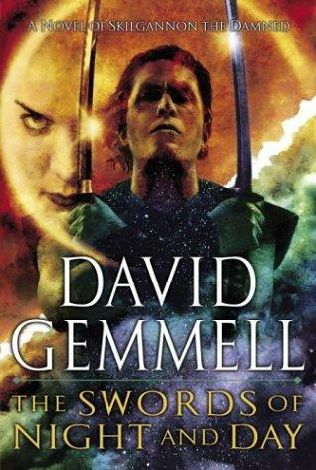 A thousand years ago, a young warrior named Skilgannon helped the princess Jianna escape an attempt on her life. They became lovers, and when she retook her throne, she made Skilgannon her chief general. When she ordered the abject annihilation of her enemies, he loved her too much to refuse her–and thus became Skilgannon the Damned.
A thousand years ago, a young warrior named Skilgannon helped the princess Jianna escape an attempt on her life. They became lovers, and when she retook her throne, she made Skilgannon her chief general. When she ordered the abject annihilation of her enemies, he loved her too much to refuse her–and thus became Skilgannon the Damned.
Now, the wizard Landis has recalled Skilgannon back from Hell to defeat the tyrant queen known as the Eternal. For hundreds of years, the Eternal has ruled the world, using the arcane arts of a fallen civilization to achieve immortality and crush all who oppose her.
When the Eternal learns of Landis’s treachery, the only hope for freedom lies with Skilgannon, the axeman Harad, the huntress Askari, and the Drenai ranger Alahir. But how can they defeat an enemy who commands nearly all the armies of the world? Who has lived a dozen lifetimes and simply steals the bodies of her clones whenever she is killed?
But most of all, how can Skilgannon defeat the Eternal when she is none other than Jianna, his beloved?
The Swords of Night and Day is a direct sequel to White Wolf, the first David Gemmell novel that I read. I have to admit, I wasn’t particularly impressed with White Wolf; it meandered a lot and didn’t seem to have any clear direction.
That is most certainly not the case with The Swords of Night and Day, however. I was hooked from the very beginning, and could hardly put it down until the shocking, mind-bending twist at the end. It tied up all the loose ends from White Wolf and completed Skilgannon’s character arc in a surprising yet satisfying way.
One of the reasons I think I love David Gemmell so much is because he captures so perfectly the experience of being a man. In that, I suspect that Gemmell is to me what Jane Austen is to most women.
But even though Gemmell’s characters might be crass, vulgar, chauvanistic, and downright detestable at times, there is always something heroic deep inside of them–something worth redeeming. And when he does redeem them, it surprises me how powerful it is–even when he redeems someone I don’t want him to.
With The Swords of Night and Day in particular, one of the things that particularly fascinated me was the fictional cosmology of the Drenai universe. With magic that can resurrect people’s spirits from hell, the story must inevitably deal with questions of the afterlife. Yet even so, there’s still enough ambiguity and latent potential that it never felt stilted or labored. If anything, it felt a bit like Tolkien’s cosmology in The Silmarillion, where all the stuff about gods, angels, and the undying lands only added to the sense of wonder.
I love just about all of David Gemmell’s books, but this one in particular was well worth the time and experience reading it. I wouldn’t recommend starting with this one, though: better to read Legend, White Wolf, and The King Beyond The Gate first. But if you’ve read and enjoyed those ones, you will DEFINITELY love this one. I certainly did.